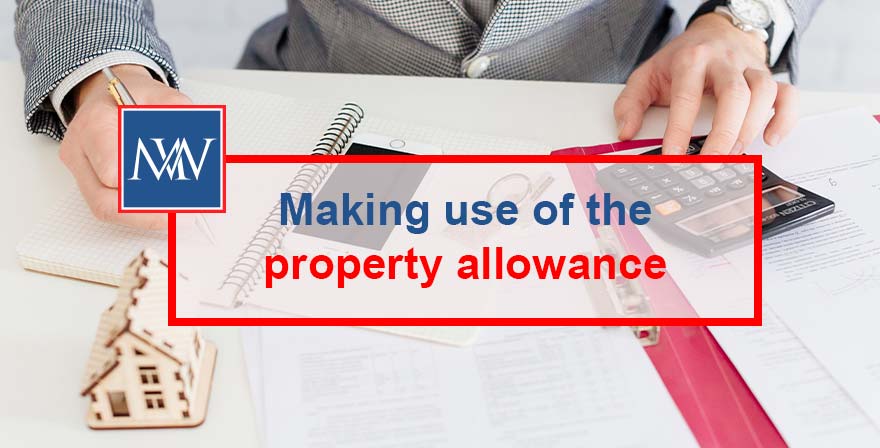
Making use of the property allowance
It is possible to enjoy tax-free income from property, even if you have already used up your personal allowance. This is because the property allowance allows you to receive annual gross property income of up to £1,000 without needing to tell HMRC about it. You can also benefit from the allowance if your annual property income is more than £1,000 to reduce the tax that you pay on your property income.
Full relief
Full relief is available where your annual gross property income is £1,000 or less. The income is fully sheltered by the property allowance and you do not need to report the income to HMRC.
However, you must still keep a record of your income.
Partial relief
If your gross annual income from property is more than £1,000, you can still benefit from the allowance if you opt to deduct it from your property income to arrive at your taxable profit. This will be beneficial if your expenses are less than £1,000, as claiming the allowance will reduce your taxable profit, and therefore your tax bill.
In this situation, you will need to complete the property pages of your Self Assessment tax return and tell HMRC about your income, but claim the allowance rather than deduct your actual expenses.
For example, if your income from property for the year was £1,500 and your expenses were £100, calculating your profit in the usual way would give you a taxable profit of £1,400. However, if instead you claim the property allowance, your taxable profit is only £500.
Jointly owned property
Where a property is jointly owned by two or more people, each person has their own property allowance to shelter or set against their share of the rental income.
More than one property business
The property allowance applies per individual rather than per property business. Consequently, you can only deduct it once, and must deduct it in place of all actual expenses. For example, if you deduct the allowance instead of actual expenses in computing the profit of one property business, you cannot deduct actual expenses to arrive at the profit for another property business.
Losses
The deduction of the allowance is capped at the amount of your property rental income – you cannot create a loss by deducting the allowance.
If your annual gross income is less than £1,000, and your expenses are greater than your income, you may wish to opt to complete the property pages of your Self Assessment return to preserve the loss if you are likely to have taxable property income in the future.
Restrictions
There are certain circumstances in which the property allowance is not available. You cannot use it against property income received from:
- a company that you, or someone connected to you, owns;
- a partnership where you, or someone connected to you, are partners;
- your employer, or the employer of your spouse or civil partner.
For example, if you have a personal or family company that you run from home which pays rent for the home office space that it uses, you cannot use the property allowance to shelter the rental income received.
The allowance cannot be used if you claim a tax reduction for interest and finance costs (for example, mortgage interest) or if you deduct expenses from letting a room in your own home rather than using rent-a-room relief (which in any event is more beneficial).
For more information, Book a Free Consultation
Need Accountancy Support?
For information on bespoke training, or if you have any other questions for Makesworth Accountant, please fill in your details below
















 151
151